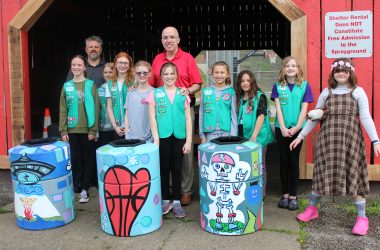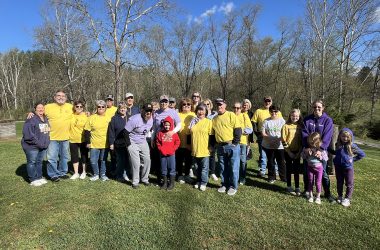John 6:22-35
The text before us begins: “The day following . . .” This would be the day following the feeding of the five thousand by the division of five loaves of bread and two fish. It would be the day following the separate departures of Jesus and the disciples from the desert place where the feeding of the five thousand occurred. It would be the day following the night in which the disciples beheld Jesus walking toward them upon the water of the sea (v. 19).
The people which stood on the other side of the sea (v. 22) were of those who ate of the bread and fish. These people hopped aboard the boats from Tiberius that arrived near the site of the feeding and then headed to Capernaum (v. 24). The gospel of Luke describes the location of the feeding to be a desert place belonging to the city of Bethsaida. This location would have been five or six miles eastward across the Sea of Galilee from Capernaum.
It is safe to say that not every person who ate of the bread and fish went to Capernaum seeking Jesus. But there was a significant number, a number which the ships from Tiberius could accomodate. That number would have included many who sought to make Jesus their king (see v. 15). It is this audience that Jesus addressed in verses 26 and 27. Jesus told them that they sought Him for the wrong reason. Jesus had performed many miracles — healing of the lame, the diseased. Jesus had cast out demons. He had given them sign after sign that He had been sent by God the Father. But they did not seek Him because He was God the Son or sent by God the Father. They sought Him because He had gratified their physical appetites. They sought Him because they wanted a better physical life on earth. They did not see God the Father in Jesus because they were not seeking God the Father.
Jesus told them to labor for food that does not perish, food which shall result in life everlasting. It is food which Jesus (the Son of man) shall give because He has been sealed by God the Father for this very purpose.
His listeners responded by asking what work that they must do to acquire this food that would yield eternal life. His listeners believed in God. They believed that God exists, that God created the world, that God through Moses gave the law by which they were to live. They believed all these things, but they also knew that they had not eaten of the food which gives life eternal. How right they were!
Jesus directly answered their question. Jesus declared the work that God required, the thing which they must do. They must believe on Him whom God has sent. Jesus used the past tense. The One whom they must believe upon was not One whom God the Father would send in the future. The Promised One had already been sent. He was standing there before them. To receive the food that gives life everlasting they must believe upon Him.
If Jesus were the Prophet of whom Moses spoke in Deuteronomy 18:18-19 (New Testament believers know Jesus to be that Prophet), all who heard His words were required to believe.
They asked Jesus for a sign that they might believe. They even suggested the manner in which Jesus might deliver this bread. They thought it appropriate that He might cause manna to rain from heaven as it did when Moses led the children of Israel in their forty years of wandering in the desert.
Jesus assured them that the manna which God caused to fall upon the camp of Israel was not the true bread from heaven which “my Father giveth” (v. 32). Jesus did not produce a sign at this time. (His sign to them and to all men is His resurrection on the third day.) He declared: “For the bread of God is he which cometh down from heaven, and giveth life unto the world.”
The audience hearing Jesus responded, “Lord, evermore give us this bread.” Doubtless, not one present understood the things which must follow such that they could receive the bread that they requested. They were looking to receive a bread that they would physically ingest, a bread which would provide a magical antidote against physical death. What they failed to realize was that they were already dead. The true bread of God does not prolong the live bodies which encase dead men. The true bread of God gives life to dead men.
In asking Jesus for the true bread of God, they were requesting spiritual life which was lost in the Garden of Eden. They were asking for bread which would overcome their sins. They, unknowingly, were asking Jesus to satisfy their sin debt by going to the cross and dying in their place.
Jesus declared that those who come (present tense) to Him and receive (present tense) Him shall never hunger nor thirst (future tense). He is (present tense) the bread of life that came down (past tense) from heaven. In verse 35, Jesus does not use the past tense. It is all present and future. He that believes, receives the bread of life. With Jesus the past is erased. John recorded these things such “. . . that ye might believe that Jesus is the Christ, the Son of God; and that believing ye might have life through his name” (John 20:31).



